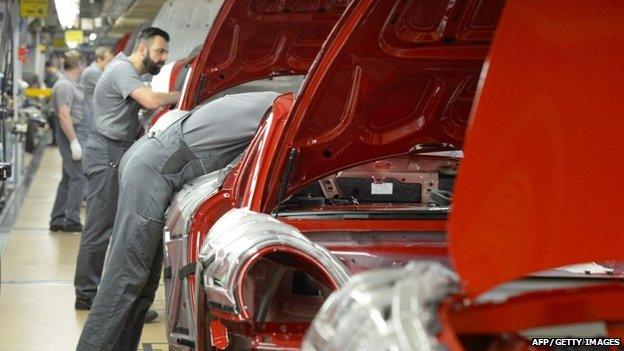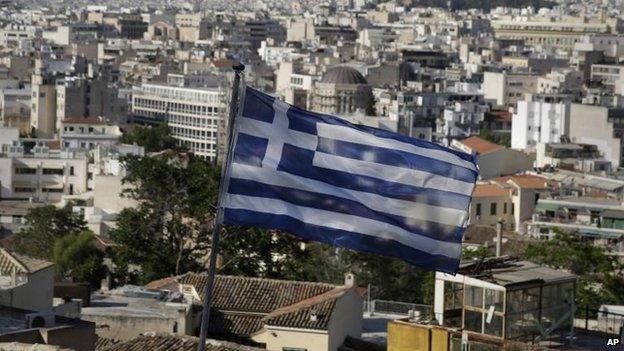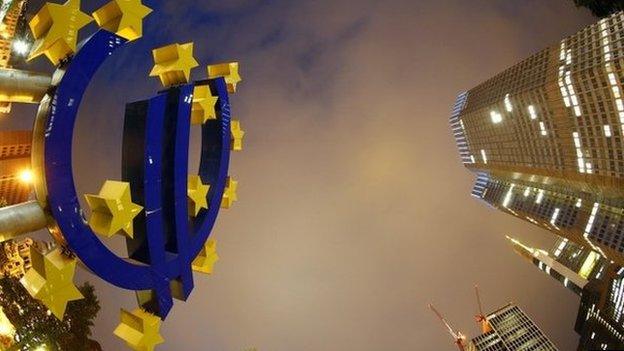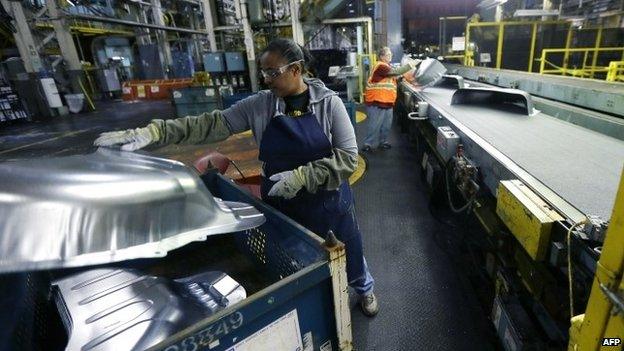Eurozone economic growth picks up to 0.4%
- Published

The economy of the eurozone grew by 0.4% in the first three months of the year, official figures have shown, as its slow recovery continues.
Although the figure was slightly below analysts' expectations, it shows growth in the bloc has been accelerating slowly over the past year.
It was also the fastest quarterly growth rate for nearly two years. , external
Earlier, figures showed Germany's economy grew by less than expected while France grew faster than forecast.
Recovery signs
Germany's economy grew by just 0.3%, external in the first three months of the year. This was below analysts' estimates of 0.5% and down from growth of 0.7% seen in the previous quarter.
Despite private consumption and investment in construction and industrial equipment rising, Germany's growth was held back by a fall in exports.
The German Federal Statistics Office also released inflation data which showed consumer prices rose by 0.5% in the year to April, up from 0.3% in March.
Inflation in German, as in the rest of the eurozone, remains below the European Central Bank's (ECB) target of just below 2%.

Greece is now back in recession, the figures show
In France, the economy grew at its fastest rate in nearly two years, expanding by 0.6% in the quarter., external
The growth figure is the strongest since the second quarter of 2013 when France's economy expanded by 0.7%.
Last month, official statistics agency INSEE said French consumer spending grew by 1.6% in the first three months of the year, boosted by lower oil prices and a weaker euro.
French industrial production grew at its fastest pace for four years in the first quarter, INSEE added.
There was also good news from Italy, which recorded its first growth since the third quarter of 2011.
The economy expanded by 0.3% in the first three months of the year, official figures showed, external, the fastest quarterly growth for four years.
Spain rebounds
However, Greece's economy shrank 0.2% in the first quarter, slipping back into recession following a 0.4% contraction during the final quarter of 2014. Greece is still locked in negotiations with its creditors over the country's bailout terms.
Spain reported 0.9% first quarter growth two weeks ago, marking its fastest rate of expansion since 2007 and the best rate of expansion among the eurozone nations.
Howard Archer, chief UK and European economist at IHS Global, said the eurozone growth figure suggested the economy had benefited from sharply lower oil prices, a weakened euro and increasing European Central Bank monetary stimulus.
"It is evident that improved growth was due to strengthened domestic demand," he said.
"Domestic demand was certainly behind the improved growth in France and Italy, and it also reportedly held up reasonably well in Germany."
- Published5 May 2015

- Published4 May 2015
